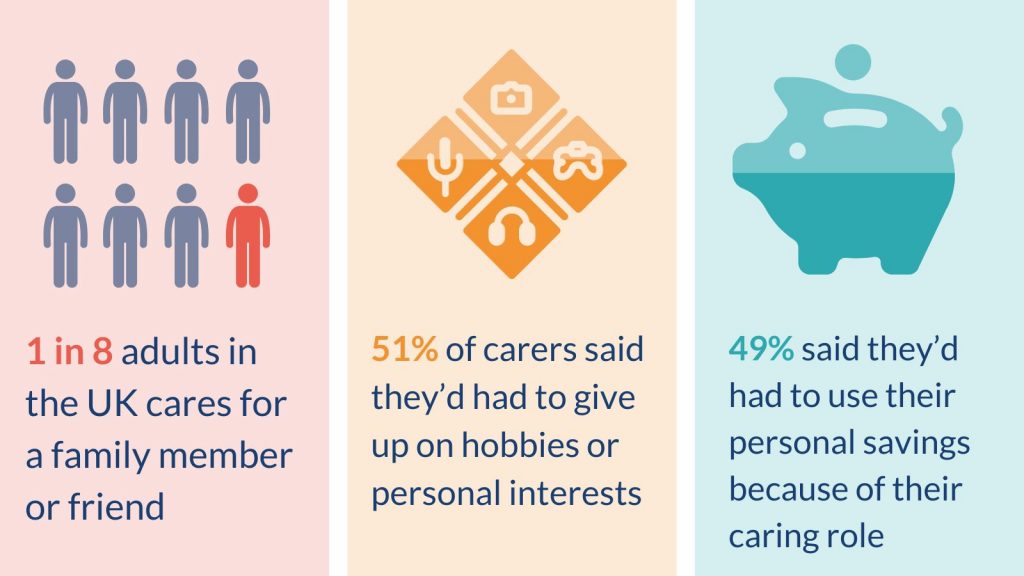
Anne McLaughlin is a former MSP, former MP and is Campaigns Officer for SNP Socialists
At the start of 2025, I became a full-time carer for my 85-year-old mum. I had been her registered but part time carer for many years. I juggled caring responsibilities with running up and down to London every week as an MP. So, ironically, when I had the opportunity and the influence, I never really had the time to stop and think about how I might use what I was learning to campaign or better support for carers.
My role changed immeasurably when her health took a dive on various fronts in January of this year. I’m now a lot clearer in my mind about the changes that I think need to be made to improve the lot of carers. Bear in mind those providing the most intensive care tend to be from working class backgrounds and we know that the poverty rate for unpaid carers is 50% higher than for those who do not having caring responsibilities. This, whilst they save the public purse in Scotland an estimated £15.9 billion every year.
So as a socialist, I have to speak up for this incredibly marginalized group. I want to focus on one simple change that could reduce some of the immense pressure on carers and make a significant difference to their quality of life. And that is a legislative requirement for all public sector bodies to ‘demonstrate that they have taken into account the distinctive needs’ of unpaid carers. I’ll give you a couple of examples from my own experience but from talking to other carers, I know there are many more. Making an appointment to see a GP. The system with most GPs is that if you miss the exact time you have to call, usually 8am, you either have to try at the exact time the next day or accept an appointment 3 or 4 weeks hence. It can be very frustrating. Imagine having to do that for yourself and also for the person you’re caring for. There is a wider issue about access to GPs and I’m glad the Scottish Government have put money into addressing those issues recently.
However, specifically on carers, what if the NHS allowed us a different type of access? Carers cannot work to strict timetables because they have no choice other than to respond to the needs of the person they are caring for at the time of asking. I would also argue that carers have more reason than most to forget to call at a specified time. What if carers were allowed to email for an appointment or book in online? Much of the paperwork I do for my mum is done very late at night or in the early hours of the morning. I can’t phone at that time, but I could email. What a massive difference that would make.
The second example is again, the NHS. I am waiting for a fairly minor but necessary surgical procedure. The surgery isn’t the worry, it’s the fact that it will be two months before I can resume my caring role. At time of writing, I have no idea how this can possibly work but I’m trying to find a solution. There are two things the NHS could do to ‘demonstrate that they have taken into account carers’ needs’ They could give them more than the usual 2 or 3 weeks’ notice everyone else gets for surgery. And they could remove the rule about being taken off the waiting list if you turn down 3 dates.
Looking at my situation, it’s hard enough to find a solution but to be able to apply that solution with a few weeks’ notice is challenging in the extreme. If I cannot do that on time or if I cannot fit in with the dates I am offered and this happens on 3 occasions, I could lose my right to have that necessary surgery. It’s not just the NHS of course, so many public bodies set what, for a carer, is an unrealistic response deadline often with financial penalties if you don’t meet them. If you are responsible for managing two households and two lives, of course you need more flexibility. But you don’t get that extra flexibility.
Now I don’t know exactly how it would all work. However, one of the benefits of being unelected is that I don’t have to come up with the fine detail, I just have to say what needs are not being met and ask policy makers to come up with a solution. I will end by saying this.
This piece deliberately does not address the emotional or financial impact of being an unpaid carer but I do just want to say to any carer reading this – oh my goodness, NOW I get it. Previously I had empathy but now, now I really KNOW. And whilst I can’t yet change anything for you, if my experience of the last year is anything to go by, I know that a simple acknowledgement of what you do and of your existence, goes a long way. So, to use a term I’ve never liked but it seems appropriate in the circumstances – carers, I see you.
Image Credit: National Institute for Health and Care Research, CC BY 4.0 https://creativecommons.org/licenses/by/4.0, via Wikimedia Commons


I would also say that there also needs to be much more joined up thinking. People do not know how to get access services their loved ones needs. GPs are very reluctant to say someone has lost mental capacity as they are not psychiatrists. Apparently something to do with their contracts. You can end up in an endless loop were you want home carers to go in as they are missing meals and medication when you are not there. You set it up. They decline the service. They don’t get the service they need as they haven’t been deemed to have lost capacity. It takes ages to get an appointment to get a diagnosis or a crisis were they are in hospital and as they don’t want to stay. Loss of capacity is diagnosed at that point. It shouldn’t have to reach that point though.